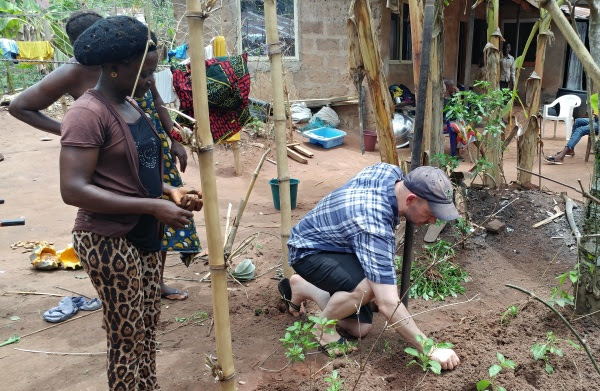“Up and at ’em!”, my mom used to shout to me and my brothers every morning. She would have our brown paper bag lunch ready and off we’d walk to Our Lady of Loretto school in Hometown, Illinois. That same spirit that woke us up in the morning to go to school also motivated all of our school related activities. Whether it was completing our homework or respecting our teachers, our parents made sure that we took our education seriously.

Most of us understand that it’s unwise to universalize our own personal life experiences as if they are shared by everyone. As I have become a missionary to Nigeria in West Africa, this truth has been confirmed for me especially as it pertains to youth education. In my recent missionary journey to Nigeria, Deacon Leo and I visited HEAL supported “BOMCA” school in Mbaise village. We sat down and spoke with school headmaster, Tony Maduka.
As I asked Tony questions about his work with the students and teachers, he focused on a core problem involving the parents. A couple of facts of rural life in Nigeria makes operating a school in this setting very challenging. First, most villagers survive on some kind of subsistence farming, whether it be growing crops or raising livestock. Day to day survival requires constant work on the land and parents often have an incentive to keep their children home to work.
Secondly, many parents of rural children received little, if any, education themselves. So, the crucial importance of education may not be as evident to these parents as one would like. In hearing Tony speak about these social dynamics, I was able to sympathize with parents whose focus on day to day survival might make them less than enthusiastic partners in their children’s education. On top of this motivational challenge, the parents are barely able to pay any school fees.
Still, HEAL educates 280 children in our 3 rural schools by offering necessities like food, shelter, water, and first aid that the parents alone struggle to provide. Then, Deacon Leo and the Messengers of Justice instill a great love for learning in the children every day in view of HEAL’s vision of forming a new generation of servant leaders (Mt. 20:28) in West Africa thru education.
Of course, in light of these challenges, we must raise the funds to cover the costs of operating our schools, most urgently the cost of paying our teachers. Please help us break the cycle of rural poverty and raise up future leaders for West Africa and beyond, in Jesus’ name!
